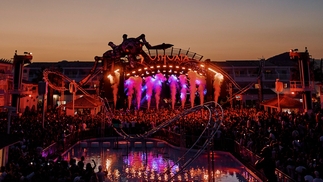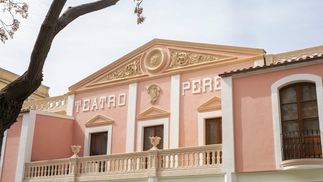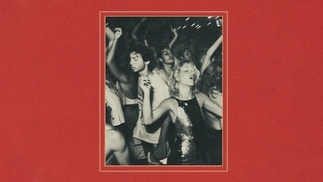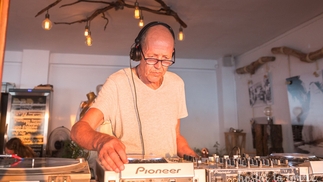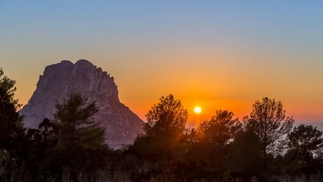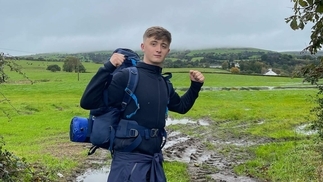COYU: CAT WHO'S GOT THE CREAM
Huge parties in Ibiza, a best-selling label... Can it get any better for Spain's Coyu?
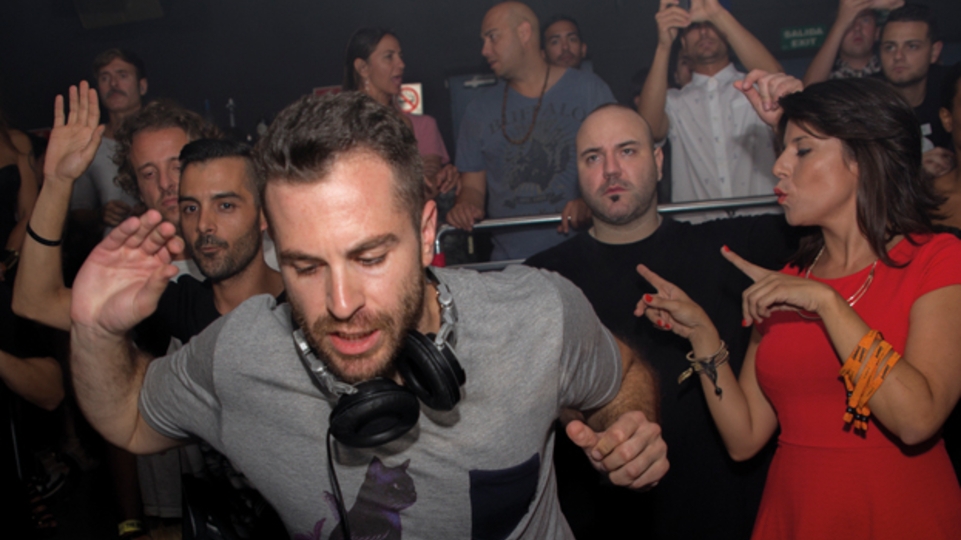
COYU ON HIS LABEL, SUARA
Barcelona native Coyu is a man who’s very much at the vanguard of the Spanish electronic music scene. Since first coming to prominence a few summers back thanks to collaborations with compatriots Uner and Edu Imbernon, he’s since overseen a period where his label, Suara, has become one of the most prolific and consistent in the house music domain. Renowned for their almost insane release schedule, Suara release an EP practically every other week; the reason, Coyu professes, is “because there’s so much great music I want to put out”. Sure, it’s an unconventional way of working, but it’s also one that’s drawn props from a host of illustrious movers and shakers, with AFFKT, Carlo Lio, Darius Syrossian and Oxia just a taste of those who’ve turned out for the label in recent years.
As you might expect from a man who oversees such a massive operation, Coyu isn’t one for standing still. This past summer saw him wow the crowds at his all-new Ibiza night, the appropriately named Suara, which took part, to great fanfare, in the island’s latest bastion of cool, Booom! That said, Coyu is far from ready to rest on his laurels — and one can’t shake the feeling that the best is yet to come. We dialed him up recently as he talked us through his plans for turning Suara into “one of the biggest brands in the music industry” — and much more besides...
So... how do you reflect on the summer?
“I've never had such an amazingly hectic season like summer 2014. We did 16 weeks of Suara parties in Ibiza and I was touring worldwide non-stop, and did around 80 gigs in five months. So I've mostly been partying, flying or waiting to board at an airport. After our Ibiza closing party I am going to do 20 gigs in 30 days, but I can’t complain, I love it.”
Was hosting your own night in Ibiza pretty much what you expected?
“I could never imagine the intensity that we [Suara] experienced this summer. Having a new brand that’s aiming to establish itself in a competitive marketplace like Ibiza has been very challenging, and it was a big risk to take. But our arrival on the island has been a real success due to the efforts of our small team of passionate individuals, who worked 24/7 towards a common goal: to offer the public an innovative and quality product which can compete with the best and most experienced international music brands.”
What was the biggest challenge for you guys?
“Our budget. In that sense, we weren't able to compete with other brands, but we tried to offer quality music and top artists, and we did both in the end. In Ibiza, 80% of people don't really care about names, they only care about what is being said on the beach and what the PR teams offer them. Our PR team of 'Kitties' did a great job. I felt we were one of the hottest and funniest teams on the island, which really helped to fill the club every week; the biggest challenge a new party has in Ibiza.”
What was your favourite party?
“Our Opening Party was simply magic and it was one of the best parties of the year. Booom! was completely full and it had an incredible energy. I still get goosebumps thinking about it!”
What inspired you to start Suara in the first place?
“Suara actually started as a sub-label of my main label of the time, Atypical Farm. Years later I had to stop working with Atypical Farm because Suara became really big, and I think it's better to focus on one project and do it well, rather than spreading your time over several projects and not doing them properly.”
Has the label had to slow down a bit this summer while your new residency takes centre stage?
“Not at all. Suara kept releasing music every week over the summer. We were the #1 most charted label of 2013 on Resident Advisor, plus we're a top seller on Beatport. We want to keep that going; Ibiza cannot stop the label.”
Do you ever worry about the negative effects of releasing so much music?
“The difference between Suara and the rest of the top labels is our eclecticism. We release one record per week, but we release deep house, tech house and techno, so the releases don't clash and fight for the same attention. Our current 15 releases have all hit the Top 20 within their respective styles on Beatport. It means that everything we release works in terms of sales. But at the same time we also get great feedback from the world's best DJs. It's not about quantity, but quality.”
What do you see as the future of Suara? Can it really get any bigger?
“Of course, it's just the beginning. In the grand scheme of things, we're a very new and inexperienced brand, and we want to keep getting better day-by-day. Suara is not just a label, we also do parties, we run a store and we have a social side with Suara Foundation, where we help street cats. So we’ve a lot going on.”
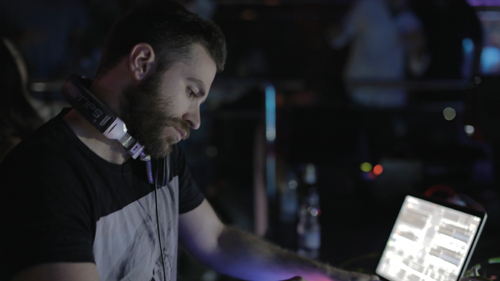
Are you still as motivated as you've ever been about releasing new music?
“Nowadays, it's very easy to get top music from top artists. Every day we have big, in-demand artists knocking on our door asking for Suara to release their music. However, we’re also trying to discover gems from unknown artists. So we're extremely motivated. The team is getting bigger and we are able to do more and better things. One of those things we're looking to launch is a new sub-label called Feline. The label will show our more underground side and will probably just release a few special vinyl-only records every year.”
Feline, The Suara Foundation, kitties... where does this all come from?
“My girlfriend is a vet and she introduced me to the world of cats, even though I never actually had any before I met her. I was actually more of a dog person back then. But fortunately I discovered cats and now they're a very important part of my life, so much so that we built the Suara brand around my love for them!”
Can you tell me a bit about when you first became involved in electronic music?
“I’m from Barcelona, which is one of the European capitals of electronic music, so it wasn't difficult to get involved when I was a teenager. Nitsa was the club where I spent all my weekends when I was growing up. It was incredible to spend my nights there listening to the likes of DJ Yoda, Fennesz, Cristian Vogel, Michael Mayer and Jacques Lu Cont. The vibe was extremely eclectic, from house to techno, from experimental to club or indie stuff. Pretty much anything you can imagine in terms of good music appeared at Nitsa at the time.”
Your collaborations with Edu Imbernon and Uner really seemed to open up a lot of doors for you. Do you still see the rest of your Spanish friends in the scene?
“Of course, those early tracks with Edu and Uner helped open some doors, but not only for us, but for a new generation of Spanish artists. I was already playing all over Spain before releasing those tracks but I got an international agenda thanks to them. It's always nice to hang with my friends, not only partying at the clubs but also in the studio.”
Unusually, not that many Spanish DJs are prominent on the global scene, or at least they weren’t up until a few years ago. Why do you reckon this is?
“Spain is in the worst economic situation of the last 35 years, but has the best generation of electronic music artists in its history. We've never had hundreds of artists playing around the world, releasing music on the best labels or owning quality labels. Why it’s happening now, I’m not 100% sure... but I’m delighted it is.”
Where are you at with your own productions right now?
“Funnily enough, I just got back to the studio today after three months away. Right now I'm working on a new collaboration with Moby, which is obviously a huge challenge. If it works, you will be the first to hear the tracks, as I'll probably premiere them at the DJ Mag Top 100 party. Watch out!”
